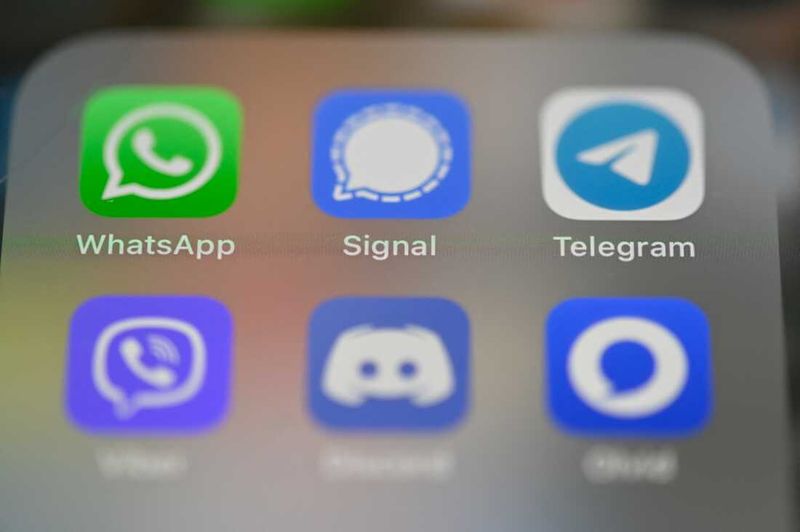15 Things You Should Never, Ever Do Over Text Message

Text messages are convenient, quick, and easy—but they can also be dangerously impersonal. While texting has become a central part of modern communication, it’s not always the best method for delivering certain kinds of messages. Some conversations require tone, facial expressions, or simply a human presence that texting can’t provide. The risk of being misunderstood, coming off as insensitive, or damaging relationships is much higher when serious topics are reduced to a few typed lines. If you care about maintaining respect and trust in your relationships, knowing what not to text is just as important as knowing what to say.
1. Break Up With Someone

Ending a relationship deserves a real conversation. Doing it over text is disrespectful and can leave the other person without closure. A breakup via text lacks the nuance and empathy needed for such a significant moment. Face-to-face conversations allow for a genuine exchange of feelings and provide the necessary space to express emotions and seek understanding.
Moreover, breaking up through text can lead to misunderstandings and misinterpretations. The absence of tone and body language might make the situation more painful. It’s essential to handle such matters with care and consideration.
A personal meeting underscores respect for the relationship’s history and the individual’s feelings. It’s a gesture of maturity and empathy, offering both parties a chance to end things on a clear and respectful note.
2. Deliver Bad News

Serious matters like a death in the family, a medical diagnosis, or a job loss shouldn’t be texted. These situations require compassion and presence. Delivering bad news through a message can feel impersonal and cold, stripping away the warmth and empathy needed in such moments.
Face-to-face communication facilitates emotional support, allowing for hugs, shared tears, and comforting words. It creates a safe space for the receiver to process the news and ask questions, fostering a deeper connection.
Choosing to share bad news in person shows respect for the recipient’s feelings and acknowledges the gravity of the situation. It underscores the importance of human connection in times of distress.
3. Apologize for Major Mistakes

While a quick “sorry” might work for minor slip-ups, heartfelt apologies—especially for betrayals or hurtful actions—should happen face-to-face or over a call. Texting lacks the tone and sincerity that a genuine apology requires.
In-person apologies allow for eye contact and tone to convey true remorse. They also provide a platform for dialogue, where both parties can express their feelings and work towards resolution.
Moreover, a personal apology is a sign of respect and courage. It shows a willingness to own up to mistakes and take responsibility, paving the way for healing and reconciliation.
4. Express Romantic Feelings for the First Time

Saying “I love you” or confessing your feelings via text can feel impersonal and risky, especially without knowing the other person’s tone or reaction. Romance thrives on genuine connection and shared experiences, which are difficult to convey through a screen.
Expressing love in person allows for a shared moment that both can cherish. The warmth in one’s voice, the sparkle in the eyes, and the authenticity of the moment make it special.
Taking this step face-to-face demonstrates courage and sincerity, offering a memorable experience that text messages simply can’t capture.
5. Resign From a Job

Quitting via text message can damage your reputation. Always resign professionally—in person or with a formal letter. Texting your resignation lacks the professionalism and respect that this significant decision warrants.
A face-to-face meeting with your employer demonstrates integrity and a respectful approach to ending your tenure. It also provides an opportunity to express gratitude, discuss transition plans, and leave on good terms.
Handling your resignation professionally reflects positively on your character and leaves the door open for future opportunities. It’s a mark of maturity and respect for yourself and your employer.
6. Argue or Confront

Text is notorious for miscommunication. Emotions escalate quickly, and without tone or context, arguments can get much worse. Attempting to resolve conflicts through text can lead to endless back-and-forth messages and unresolved tensions.
Face-to-face discussions allow for clearer communication, where tone and body language can help convey intentions and emotions accurately. They provide an opportunity for real-time responses and resolution.
Choosing to address issues in person shows respect for the relationship and a genuine desire to resolve conflicts constructively. It demonstrates maturity and a willingness to engage in meaningful dialogue.
7. Discuss Sensitive Financial Matters

Negotiating money—like asking for a loan, settling debts, or bringing up overdue payments—requires nuance and sensitivity best handled in conversation. Texting can strip away the empathy needed for such delicate topics.
Face-to-face discussions foster trust and transparency, allowing both parties to express concerns and find mutual solutions. They create a space for questions and clarifications, reducing the risk of misunderstandings.
Handling financial matters in person demonstrates professionalism and respect for both parties involved. It shows a commitment to maintaining trust and finding fair solutions together.
8. Talk About Someone Behind Their Back

Screenshots are forever. Gossiping over text can easily be forwarded and used against you. Texting creates a permanent record that can come back to haunt you and damage reputations.
In-person conversations reduce the risk of digital footprints and provide an opportunity to gauge reactions and maintain confidentiality. They allow for more controlled and thoughtful discussions.
Choosing not to engage in gossip, especially via text, reflects integrity and respect for others. It helps to build trust and maintain healthy relationships built on honesty and discretion.
9. Cancel Plans Last-Minute (Without Good Reason)

Bailing via text without explanation seems dismissive. A quick call shows you respect their time. Canceling plans at the last minute over text can make you appear inconsiderate and careless about the other person’s schedule.
A phone call or face-to-face conversation to explain the situation highlights consideration and honesty. It allows for understanding and helps maintain trust in the relationship.
Being upfront and communicative about changes in plans shows respect for your friend’s time and effort. It maintains strong bonds and helps avoid misunderstandings.
10. Share Important Life Decisions

Life-changing news like moving away, getting married, or having a baby deserves a more personal announcement. Texting such significant updates can feel detached and impersonal.
Sharing in person allows for celebration, questions, and emotional support from loved ones. It turns the announcement into a shared experience, strengthening bonds and creating lasting memories.
Choosing to share important decisions face-to-face reflects the value and importance you place on those relationships. It’s a gesture of love and respect that acknowledges the shared journey.
11. Reveal Secrets

Even if you trust someone, anything written down can be shared. Keep private info off digital trails. Texting secrets creates a written record that can be easily forwarded and misused.
In-person discussions preserve confidentiality and allow for nuanced conversations. They foster trust and ensure the message is received as intended.
Opting to share secrets face-to-face shows respect for the information and the person receiving it. It reinforces trust and the importance of discretion in maintaining close relationships.
12. Give Serious Criticism

Constructive feedback, especially in personal or work relationships, needs tone and empathy—neither of which come through well in text. Texting criticism can lead to misinterpretation and defensiveness.
In-person feedback sessions allow for a dialogue where intentions and suggestions can be clearly communicated. They provide an opportunity for questions and mutual understanding.
Delivering criticism face-to-face shows a commitment to the other person’s growth and development. It builds trust and encourages a positive and constructive relationship.
13. Flirt With Someone Who’s in a Relationship

Not only is this disrespectful, it also creates a digital record that can blow up later. Flirting with someone in a relationship via text crosses boundaries and often leads to complications.
In-person interactions can help maintain clarity and respect for boundaries. They allow for immediate feedback and understanding of the situation.
Choosing not to engage in such behavior demonstrates maturity and respect for others’ relationships. It helps maintain integrity and avoid unnecessary drama.
14. Make Jokes That Can Be Misinterpreted

Sarcasm, irony, or dark humor can come across as mean or confusing when read without voice inflection. Jokes that require tone and context often fall flat over text and might even offend.
Sharing humor in person allows for immediate laughter and understanding, ensuring the joke lands as intended. It also provides a chance to clarify and adjust the tone if needed.
Choosing to share jokes face-to-face shows consideration for others’ feelings and ensures a positive interaction. It reflects empathy and awareness in communication.
15. Text While Angry or Emotional

You might regret it. Texts sent in the heat of the moment can be screenshotted, misinterpreted, and remembered far longer than you’d like. Emotional texting often leads to regret and strained relationships.
Taking time to cool off before responding allows for clarity and thoughtful communication. It helps prevent saying things that might be hurtful or misunderstood.
Opting for a more composed approach in communication reflects emotional intelligence and maturity. It helps maintain healthy and respectful interactions.

Comments
Loading…